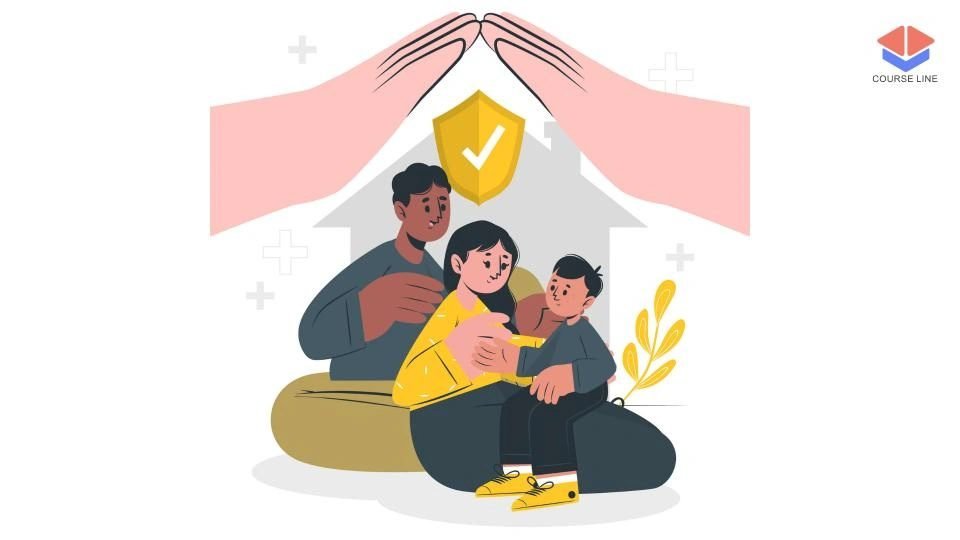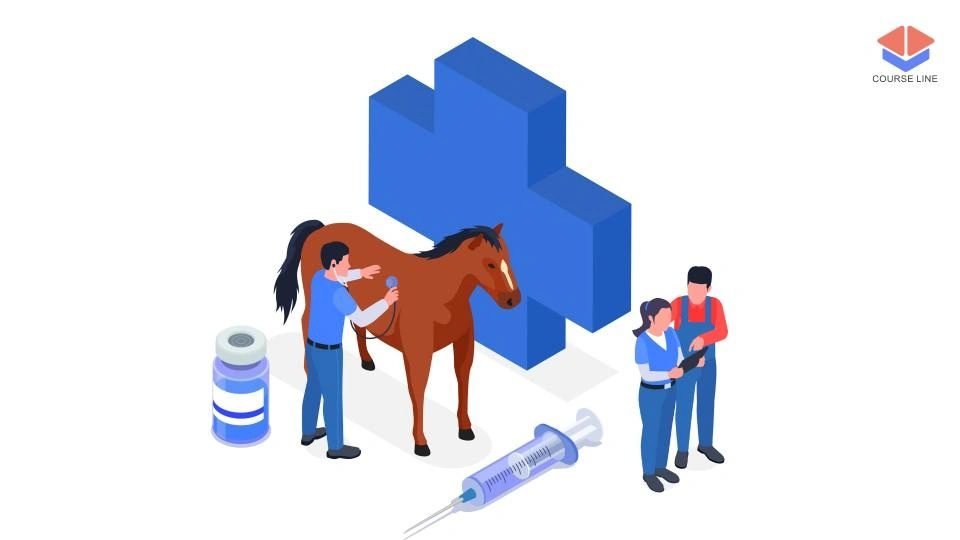Course Features
Price
Study Method
Online | Self-paced
Course Format
Reading Material - PDF, article
Duration
4 hours, 5 minutes
Qualification
No formal qualification
Certificate
At completion
Additional info
Coming soon
- Share
Overview
The Safeguarding Children Level 3 Advanced Diploma is a comprehensive, advanced-level course designed for professionals and individuals working with or around children. It offers a deep understanding of child protection, safeguarding responsibilities, and best practices to promote children's safety and wellbeing in various environments, including schools, healthcare, social care, and community organisations.
This course begins by introducing the fundamental concepts of safeguarding, including its core principles, purpose, and how to implement safeguarding policies and procedures effectively. Learners will understand how safeguarding forms the backbone of child welfare services in the UK and how to establish a safeguarding-first approach within organisations.
Legal knowledge is a critical part of safeguarding practice, and this course thoroughly covers UK legislation, statutory guidance, and the specific legal responsibilities of those working with children. It highlights essential acts such as the Children Act 1989 and 2004, Working Together to Safeguard Children guidance, and local safeguarding procedures, ensuring learners are fully equipped to operate within the law and respond ethically and appropriately.
One of the central elements of the course is recognising and responding to signs of abuse and neglect. Learners will gain detailed insight into different types of abuse—physical, emotional, sexual, and neglect—as well as the behavioural indicators that may raise concern. The course teaches how to handle disclosures, report concerns, and follow safeguarding pathways and referral processes with professionalism and sensitivity.
Risk assessment and prevention are crucial components in safeguarding children. Learners will develop skills in identifying potential safeguarding risks, conducting assessments, and implementing proactive risk management strategies. The course also explores how to work collaboratively with families and community services to build supportive networks that prioritise the welfare of children.
A dedicated module on professional development reinforces the importance of reflective practice and continuous learning in safeguarding. Learners will engage with case studies and real-world scenarios to apply their knowledge, helping them build confidence in handling complex safeguarding issues effectively.
Who is this course for?
The Safeguarding Children Level 3 Advanced Diploma is a comprehensive, advanced-level course designed for professionals and individuals working with or around children. It offers a deep understanding of child protection, safeguarding responsibilities, and best practices to promote children's safety and wellbeing in various environments, including schools, healthcare, social care, and community organisations.
This course begins by introducing the fundamental concepts of safeguarding, including its core principles, purpose, and how to implement safeguarding policies and procedures effectively. Learners will understand how safeguarding forms the backbone of child welfare services in the UK and how to establish a safeguarding-first approach within organisations.
Legal knowledge is a critical part of safeguarding practice, and this course thoroughly covers UK legislation, statutory guidance, and the specific legal responsibilities of those working with children. It highlights essential acts such as the Children Act 1989 and 2004, Working Together to Safeguard Children guidance, and local safeguarding procedures, ensuring learners are fully equipped to operate within the law and respond ethically and appropriately.
One of the central elements of the course is recognising and responding to signs of abuse and neglect. Learners will gain detailed insight into different types of abuse—physical, emotional, sexual, and neglect—as well as the behavioural indicators that may raise concern. The course teaches how to handle disclosures, report concerns, and follow safeguarding pathways and referral processes with professionalism and sensitivity.
Risk assessment and prevention are crucial components in safeguarding children. Learners will develop skills in identifying potential safeguarding risks, conducting assessments, and implementing proactive risk management strategies. The course also explores how to work collaboratively with families and community services to build supportive networks that prioritise the welfare of children.
A dedicated module on professional development reinforces the importance of reflective practice and continuous learning in safeguarding. Learners will engage with case studies and real-world scenarios to apply their knowledge, helping them build confidence in handling complex safeguarding issues effectively.
Requirements
The Safeguarding Children Level 3 Advanced Diploma is a comprehensive, advanced-level course designed for professionals and individuals working with or around children. It offers a deep understanding of child protection, safeguarding responsibilities, and best practices to promote children's safety and wellbeing in various environments, including schools, healthcare, social care, and community organisations.
This course begins by introducing the fundamental concepts of safeguarding, including its core principles, purpose, and how to implement safeguarding policies and procedures effectively. Learners will understand how safeguarding forms the backbone of child welfare services in the UK and how to establish a safeguarding-first approach within organisations.
Legal knowledge is a critical part of safeguarding practice, and this course thoroughly covers UK legislation, statutory guidance, and the specific legal responsibilities of those working with children. It highlights essential acts such as the Children Act 1989 and 2004, Working Together to Safeguard Children guidance, and local safeguarding procedures, ensuring learners are fully equipped to operate within the law and respond ethically and appropriately.
One of the central elements of the course is recognising and responding to signs of abuse and neglect. Learners will gain detailed insight into different types of abuse—physical, emotional, sexual, and neglect—as well as the behavioural indicators that may raise concern. The course teaches how to handle disclosures, report concerns, and follow safeguarding pathways and referral processes with professionalism and sensitivity.
Risk assessment and prevention are crucial components in safeguarding children. Learners will develop skills in identifying potential safeguarding risks, conducting assessments, and implementing proactive risk management strategies. The course also explores how to work collaboratively with families and community services to build supportive networks that prioritise the welfare of children.
A dedicated module on professional development reinforces the importance of reflective practice and continuous learning in safeguarding. Learners will engage with case studies and real-world scenarios to apply their knowledge, helping them build confidence in handling complex safeguarding issues effectively.
Career path
The Safeguarding Children Level 3 Advanced Diploma is a comprehensive, advanced-level course designed for professionals and individuals working with or around children. It offers a deep understanding of child protection, safeguarding responsibilities, and best practices to promote children's safety and wellbeing in various environments, including schools, healthcare, social care, and community organisations.
This course begins by introducing the fundamental concepts of safeguarding, including its core principles, purpose, and how to implement safeguarding policies and procedures effectively. Learners will understand how safeguarding forms the backbone of child welfare services in the UK and how to establish a safeguarding-first approach within organisations.
Legal knowledge is a critical part of safeguarding practice, and this course thoroughly covers UK legislation, statutory guidance, and the specific legal responsibilities of those working with children. It highlights essential acts such as the Children Act 1989 and 2004, Working Together to Safeguard Children guidance, and local safeguarding procedures, ensuring learners are fully equipped to operate within the law and respond ethically and appropriately.
One of the central elements of the course is recognising and responding to signs of abuse and neglect. Learners will gain detailed insight into different types of abuse—physical, emotional, sexual, and neglect—as well as the behavioural indicators that may raise concern. The course teaches how to handle disclosures, report concerns, and follow safeguarding pathways and referral processes with professionalism and sensitivity.
Risk assessment and prevention are crucial components in safeguarding children. Learners will develop skills in identifying potential safeguarding risks, conducting assessments, and implementing proactive risk management strategies. The course also explores how to work collaboratively with families and community services to build supportive networks that prioritise the welfare of children.
A dedicated module on professional development reinforces the importance of reflective practice and continuous learning in safeguarding. Learners will engage with case studies and real-world scenarios to apply their knowledge, helping them build confidence in handling complex safeguarding issues effectively.
-
- Understanding Safeguarding 00:10:00
- Key Concepts and Principles 00:10:00
- Safeguarding Policies and Procedures 00:10:00
-
- Legislation and Guidance 00:10:00
- Roles and Responsibilities 00:10:00
- Legal and Ethical Issues 00:10:00
- Types of Abuse and Neglect 00:10:00
- Signs and Symptoms of Abuse 00:10:00
- Responding to Concerns 00:10:00
- Engaging with Families 00:10:00
- Community Resources and Support 00:10:00
- Promoting a Safeguarding Culture 00:10:00
- Exam of Safeguarding Children Level 3 Advanced Diploma 00:50:00

No Reviews found for this course.
Is this certificate recognized?
Yes, our premium certificate and transcript are widely recognized and accepted by embassies worldwide, particularly by the UK embassy. This adds credibility to your qualification and enhances its value for professional and academic purposes.
I am a beginner. Is this course suitable for me?
Yes, this course is designed for learners of all levels, including beginners. The content is structured to provide step-by-step guidance, ensuring that even those with no prior experience can follow along and gain valuable knowledge.
I am a professional. Is this course suitable for me?
Yes, professionals will also benefit from this course. It covers advanced concepts, practical applications, and industry insights that can help enhance existing skills and knowledge. Whether you are looking to refine your expertise or expand your qualifications, this course provides valuable learning.
Does this course have an expiry date?
No, you have lifetime access to the course. Once enrolled, you can revisit the materials at any time as long as the course remains available. Additionally, we regularly update our content to ensure it stays relevant and up to date.
How do I claim my free certificate?
I trust you’re in good health. Your free certificate can be located in the Achievement section. The option to purchase a CPD certificate is available but entirely optional, and you may choose to skip it. Please be aware that it’s crucial to click the “Complete” button to ensure the certificate is generated, as this process is entirely automated.
Does this course have assessments and assignments?
Yes, the course includes both assessments and assignments. Your final marks will be determined by a combination of 20% from assignments and 80% from assessments. These evaluations are designed to test your understanding and ensure you have grasped the key concepts effectively.
Is this course accredited?
We are a recognized course provider with CPD, UKRLP, and AOHT membership. The logos of these accreditation bodies will be featured on your premium certificate and transcript, ensuring credibility and professional recognition.
Will I receive a certificate upon completion?
Yes, you will receive a free digital certificate automatically once you complete the course. If you would like a premium CPD-accredited certificate, either in digital or physical format, you can upgrade for a small fee.
Course Features
Price
Study Method
Online | Self-paced
Course Format
Reading Material - PDF, article
Duration
4 hours, 5 minutes
Qualification
No formal qualification
Certificate
At completion
Additional info
Coming soon
- Share
Investment Decision Techniques: A Complete Guide to Capital Budgeting Methods
Kazi Shofi Uddin Bablu237$837.21Original price was: $837.21.$25.61Current price is: $25.61.Business Ethics Challenges
Course Line237$837.21Original price was: $837.21.$25.61Current price is: $25.61.Equine Science Essentials
Course Line238$837.21Original price was: $837.21.$25.61Current price is: $25.61.





